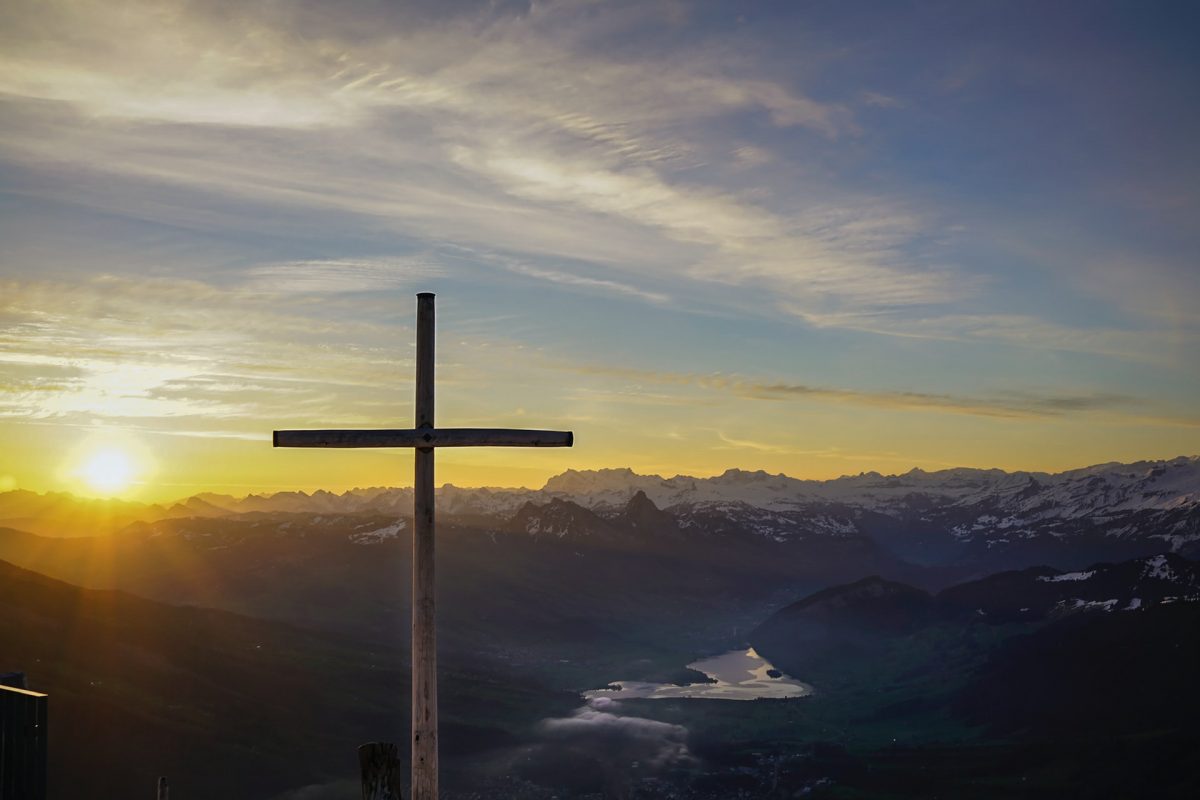Kimberly Reisman ~ Aha Moments and the Kingdom of God

I’m excited about what’s unfolding at A Wesleyan Accent. We’ve got a group of younger voices in the Methodist/Wesleyan world who have a great deal to offer those of us seeking to live out the Christian life “with a Wesleyan accent” in the Kingdom of God. One of those is Phil Tallon. Recently, Phil wrote a piece on teaching youth about justification that really struck a chord in me. I believe he’s spot on to connect it with allegiance to a new kingdom.
Justification (or more formally – justification by grace through faith) is that aha moment when you see things in a new light. Like that moment when instead of seeing the wine glass, you suddenly see the two silhouettes. Or when you’ve struggled to get a concept in math for what seems like forever, but then things click and you suddenly just get it.
In Christian tradition, especially when spoken with a Wesleyan accent, we associate that moment with a realization of sin and the need for pardon and forgiveness – our need and Christ’s self-giving on the cross intersect and we suddenly just get it. That’s an amazing moment, but it’s usually a moment that’s taken a while to arrive.
The challenge Phil points out in dealing with youth, I think is the same challenge we face in the context of our wider culture – we don’t feel sufficiently guilty about our sin to feel the weight and impact of pardon. It’s not that we aren’t guilty, or that we might not eventually come to the realization of our need – as I said, that aha moment usually takes a bit of time to arrive. But to start there no longer makes sense in our self-esteem worshiping, everyone-gets-a-trophy culture.
As my mentor Billy Abraham has said, some things may need to be said before other things can be said.
One of the things that may need to be said before other things can be said involves trust. At its core, in the Kingdom of God, faith is about trust. So the question for everyone is who do you trust? Where does your ultimate trust lie? Is it in God or something/someone else? Is it in God’s authority over your life or something/someone else’s authority over your life?
A few weeks ago I was in Budapest, Hungary for a United Methodist meeting. While there I was able spend time with folks from the Methodist Church of Hungary as well as other Hungarians in the Methodist/Wesleyan family. They know all too well the importance of choosing who and what will hold your ultimate trust and allegiance.
Hungary has an amazing history – over 1,000 years – with much of it spent under the rule of outsiders. Most recently, Hungary suffered under the totalitarian authority first of the Nazis and then the Soviets. Only since 1989 have they been free to govern themselves. During those years of oppression, Hungarians faced a daily choice: where and with whom would they place their ultimate trust and allegiance? Would they trust the Nazis? Would they trust the Communists? Or would they trust in the authority of God? Would their ultimate allegiance be to the Kingdom of God, even as it lay hidden from their sight?
In the U.S. it’s easy to assume that our choice isn’t as significant because our government isn’t oppressive in the ways that the Nazis or Communists were. But that assumption is deeply flawed. Placing our ultimate trust and allegiance in any government or political system is a dangerous mistake. Even a quick review of U.S. history (which, among other things, includes slavery, Jim Crow, and the forced sterilization of people with disabilities) makes that fact painfully obvious.
So we’re back to the question of trust. Where does your ultimate trust lie? To what authority will you be most fundamentally accountable?
Be strong in the Lord and in his mighty power. Put on all of God’s armor so that you will be able to stand firm against all strategies of the devil. For we are not fighting against flesh-and-blood enemies, but against evil rulers and authorities of the unseen world, against mighty powers in this dark world, and against evil spirits in the heavenly places. (Ephesians 6.10-12, NLT)